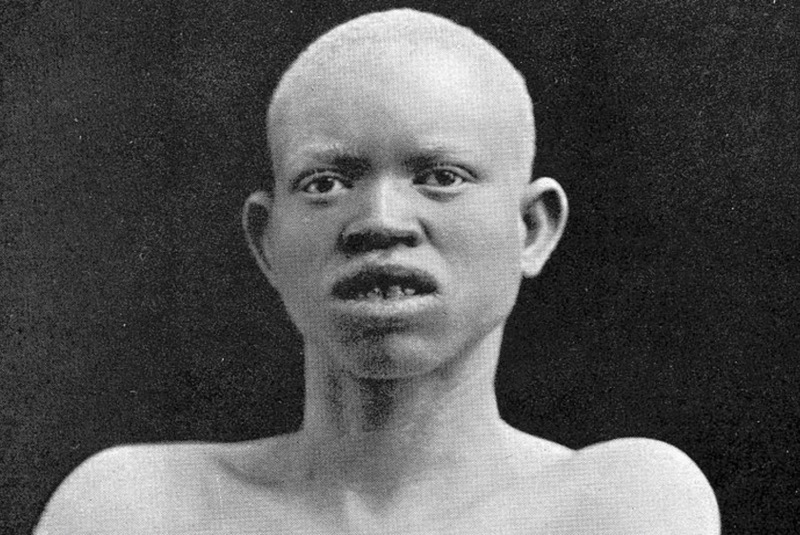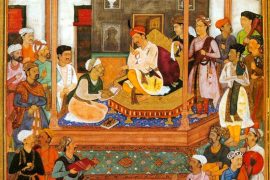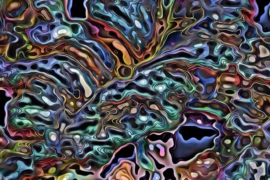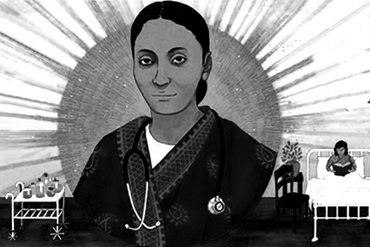People are overly hospitable to me: they smile at me and provide extra help. They remind me that I am not one of them. When I speak in Tamil, their eyes grow wide with surprise, and some people bluntly question whether I am really Indian. To me, that is painful.
Kamna Shastri struggles to find her place in society as she suffers from a rare genetic condition—Albinism. Albinism, which affects one in seventeen thousand people worldwide, is identified by lack of melanin, the colouring pigment of skin, hair, and eyes.
People who suffer from Albinism have white or very light hair and pale skin that easily burns under the sun. Melanin is essential for the development of the retina and the protection of the skin from UV rays. People with Albinism are at high risk of developing skin cancer and often face eye problems such as poor eyesight, astigmatism, photophobia, nystagmus, and squint.
Due to an acute lack of awareness regarding this rare condition, people suffering from it often face discrimination in society. Society has surrounded the disorder with myths and superstitious beliefs.
Kamna looks at her Albinism in a positive light as her parents moved to the United States. She often passes off as a caucasian and enjoys privileges that her family and friends can’t due to their skin colour. She doesn’t face the hostility South Asian communities face as they become a victim of racism.
Regardless of all these privileges, Kamna feels left out of her community. She says that the privileges make her ethnicity invisible as neither the Indians nor the Americans see her as a part of the South Asian community.
In countries such as India, where the difference between the skin colour of an Albino and other members of the community is stark, high levels of misinterpretation can lead to social isolation, issues with self-esteem, and a lack of proper care.
Early diagnosis is essential to manage ocular Albinism characterised by vision abnormalities. On 26 March 2015, the UN Human Rights Council created a mandate of Independent Experts for the Albino people to enjoy human rights as many reports were being received regarding discrimination, physical violence, and even ritual killing. Ergo, 13 June was declared International Albinism Awareness Day.
Around the world, many superstitions threaten Albinos. In Sub-Saharan African countries, people believe that Albinos are cursed. The superstitious belief is that they are born to parents who did something gravely wrong as a punishment. Children born with Albinism are immediately killed as they think that they bring ‘bad luck’ or ‘shame.’
In some parts of Africa, it is also believed that Albinos carry supernatural powers. Many people with Albinism get kidnapped. They get killed because of the belief that their blood and bone infer these powers to their possessors. Albino women in Zimbabwe face the danger of becoming a target of rape for their condition. There is a false belief that an albino woman can cure a man with HIV.
In India, over two lakh people are afflicted with Albinism. The lack of awareness has made them a target of misunderstanding and discrimination as many people with Albinism struggle to receive proper education, employment, marriage, and even acceptance in society. This situation is prevalent, especially for people with Albinism born in poor families.
Suraj, the son of a vegetable vendor, lives in Delhi. His eyes have suffered severe damage due to a lack of care. He has bloodshot pupils, colour acquired from the blood clots. He often spends his time inside the house as he is shy and sensitive. Like Kamna, Suraj feels left out of society. However, since his parents don’t have the financial means to take him abroad, where he could pass as a ‘white’ person, he is stuck in the smaller and conservative areas of Delhi, where he is seen as an outsider. ‘There is no one who looks like me here,’ says Suraj, who is unwilling to face the world unless necessary.
Albinism is a genetic disorder and not a disease; it is not something that could be treated or healed; however, it does need proper care. A common belief that Albinism is contagious makes the social integration of people with Albinism even more difficult in society.
In a survey of people with Albinism, a significant number of people attested to facing problems in getting admitted to schools, and many of the objections were raised because they thought the students had a contagious disease. Many reported difficulties in getting jobs and rejection due to the social stigma. If they did get jobs, people at work often isolated them, and no one wanted to get close to them.
Albinism may be a rare disorder, but it is prevalent in India. Without enough social awareness, people with Albinism continue facing discrimination and hostility from their community. They are perceived as outsiders due to their skin colour.
The myths and misconceptions that surround the condition make them a target of discrimination. Social awareness is also necessary to equip the family with proper care to provide preventative measures and treatment. While Albinism cannot be cured, children deserve the treatments and precautions to take care of their extra sensitive eyes and cancer-prone skin.
-30-
Copyright©Madras Courier, All Rights Reserved. You may share using our article tools. Please don't cut articles from madrascourier.com and redistribute by email, post to the web, mobile phone or social media.Please send in your feed back and comments to [email protected]











